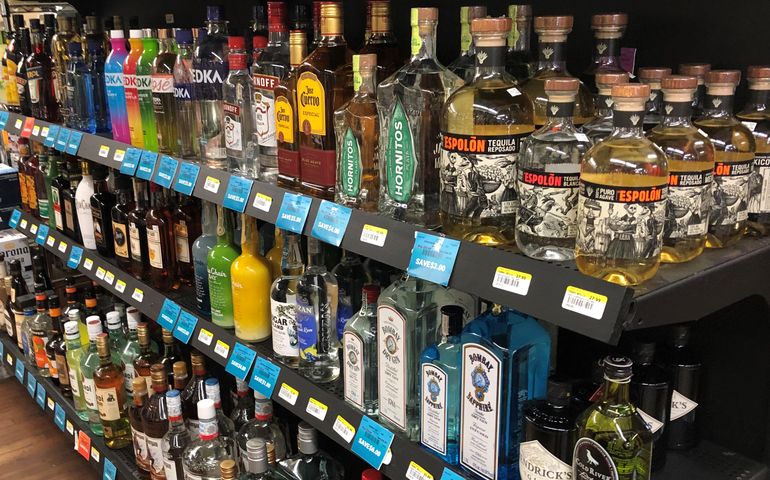Scramble is underway for increased number of Maine agency liquor licenses
 Photo / Maureen Milliken
The state will begin public hearings next week on applications for agency liquor licenses, the first time applications have been accepted since the number of available licenses was increased last year.
Photo / Maureen Milliken
The state will begin public hearings next week on applications for agency liquor licenses, the first time applications have been accepted since the number of available licenses was increased last year.
Public hearings will begin next week on awarding Maine agency liquor licenses, in what's expected to be a competitive process and the first offering of new licenses since the Legislature increased their number last year.
The Bureau of Alcoholic Beverages and Lottery Operations will conduct routine public hearings on Sept. 9, 10 and 14 that will determine awarding 36 agency liquor licenses available across 21 municipalities. There are 65 applicants for the licenses, which allow a store to sell spirits other than beer and wine.
It's the first round of hearings since last year's legislation that increased the amount of licenses available to towns and cities with larger populations. Greg Mineo, the bureau director, said the increase in license availability means this round "is expected to be quite competitive."
State liquor licenses are awarded based on population — the nine tiers range from one license in a town with fewer than 1,000 residents to 11 for a city with 60,000 or more. The bureau opens an application for a license when a spot becomes available, for instance, a store closes. Towns and cities decide if they will allow liquor sales and often give preliminary approval to applicants.
The bureau normally conducts the hearings in January or February, and again in July or August, but none have been held this year because of the COVID-19 pandemic. The hearings will be held via Zoom.
An increase in agency store licenses
Changes last year include:
- A municipality with more than 60,000 people can have 11 licenses; the previous top tier was 10 licenses for one with more than 45,000 people.
- A population between 15,001 and 20,000 allows seven licenses, where five were previously allowed for populations between 10,000 and 20,000.
- A population between 10,000 and 15,000 allows for six licenses.
- The bureau may issue one additional license beyond what's allowed in a municipality with a population of less than 10,000, considering the impact of seasonal population or tourism and other related information provided by the municipality requesting an additional agency liquor store license.
The changes came after a variety of bills were introduced, including one that would allow municipalities to determine how many licenses they would allow, regardless of population. That one was recommended not to pass by 10 of the 12 members of the legislative Committee on Veterans and Legal Affairs, which oversees liquor licensing laws.
Much of the focus of the legislation was on Portland, where the number of licenses allowed — 10 for a population of 67,000 and a tourist influx in the millions, was considered inadequate.
Sam Patel, owner of Friendly Discount Beverage, told the committee he wanted to expand from beer and wine sales to selling spirits as well. "Maine statute as currently written does not reflect the current demographic reality or market needs of Portland," he said in April 2019 testimony. He estimated that 10% to 15% of his sales come from out of state, "a number that is not captured by only considering the 67,000 year-round residents," he said.
"Having a liquor license would allow me to run my business on the same playing field as my competitors," he said.
But the legislation also changes the liquor-selling playing field in many other municipalities.
The Market Basket in Westbrook, that opened two weeks ago, for instance, has applied for a license. With two more licenses available in Westbrook, the store stood a good chance of getting one, David McLean, manager of Market Basket store operations, told Mainebiz.
"It's an option many stores want to provide their customers," McLean said. "We want to offer one-stop shopping."
There are 65 applications for 36 licenses available in 21 municipalities, including Augusta, Bangor, Brooklin, Damariscotta, Eliot, Falmouth, Gorham, Lebanon, Lewiston, Orono, Paris, Portland, Saco, Scarborough, Sullivan, Union, Waterville, Westbrook, Windham, Winthrop and York.
Mainebiz web partners
Great article, Maureen!









1 Comments